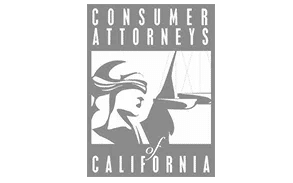When you get a rideshare, you trust your driver to get you to your destination safely. You trust other road users to follow traffic laws when driving or crossing the road. Unfortunately, drivers for companies like Uber and Lyft can’t always be trusted.
In fact, rideshares may be directly responsible for a notable increase in traffic-related deaths since 2011. One study suggested that the uptick in fatal accidents on California roads may be because of how many rideshare vehicles are on the road. This is a particularly serious problem in San Francisco, where rideshares make up about 13% of all vehicle miles traveled.
As accidents and deaths rise, it’s increasingly important to be prepared for an accident involving Lyft or Uber. These accidents have some important differences from other types of car crashes that can affect your California insurance claim or personal injury lawsuit.
How Liability Is Decided for California Car Accidents
California assigns liability based on who is at fault for most wrongful death and personal injury cases, including car accident claims. The at-fault party is the one that caused the accident. During car accidents, this usually means the responsible party neglected to follow traffic laws. Liable parties are responsible for compensating the people they harmed for the losses they experienced.
Multiple parties can be responsible for the same accident, though. In that case, they may share liability as well. California uses the comparative negligence standard to determine who is liable and for how much of the accident.
Suppose a driver hits a pedestrian while they’re crossing the road. If the pedestrian was crossing in an approved crosswalk and the driver was running a red light, the driver could be 100% liable for the accident. Their insurance would cover 100% of the victim’s medical bills up to the policy limit.
However, if the pedestrian wasn’t crossing at a crosswalk, they might be found 20% liable for the incident. In that case, the driver’s insurance would only be responsible for 80% of the pedestrian’s medical bills.
What Makes Rideshare Accidents Different?
Rideshare crashes are different from typical car accidents for two reasons:
- Duty to others: As professionals, Uber and Lyft drivers are trusted by their passengers and other road users to drive safely. They should be held to a higher standard than most other road users because driving is what they do for a living.
- Parties involved in the claim: Rideshare drivers may not officially work for app platforms. However, these platforms can be partially liable for accidents by incentivizing unsafe behavior or permitting dangerous drivers to keep working. Uber and Lyft may also take on some insurance liability in certain accidents.
Both of these considerations can make rideshare claims more complicated.
Who Is Liable for a Rideshare Accident?
Determining liability can be challenging in any accident. When rideshares enter the equation, the matter becomes more complex. However, a skilled personal injury attorney may be able to estimate liability by asking the following questions:
- Was everyone involved exercising reasonable care? Every road user is expected to act reasonably to protect themselves and others. If someone acts recklessly, they are more likely to be liable for an accident.
- Was anyone breaking a traffic regulation? Violating traffic laws is a clear example of failing to take reasonable care. Speeding, running red lights, driving while intoxicated, or texting and driving are all examples of unlawful behavior that may increase someone’s liability for an accident.
- Was either party on the clock? If someone was working when they caused an accident, their employer may be partially liable for the crash. This is based on the assumption that they would not have been on the road if they weren’t working.
For example, a rideshare driver who T-bones another car when running a red light to get to their next passenger would be partially liable for the crash. However, the app platform where they picked up the ride would also share liability. If the victim files a claim, the rideshare driver’s and platform’s insurance policies may split the cost of compensating them for their losses.
Talk to Expert San Francisco Rideshare Lawyers
Proving who’s responsible for a car accident can be challenging. That’s why you should talk to the experts at The Wakeford Law Firm. Our experienced trial lawyers are prepared to guide you through filing your rideshare accident claim. Learn more about how we can help you by scheduling your consultation today.
How useful was this post?
Click on a star to rate it!
Average rating 0 / 5. Vote count: 0
No votes so far! Be the first to rate this post.







